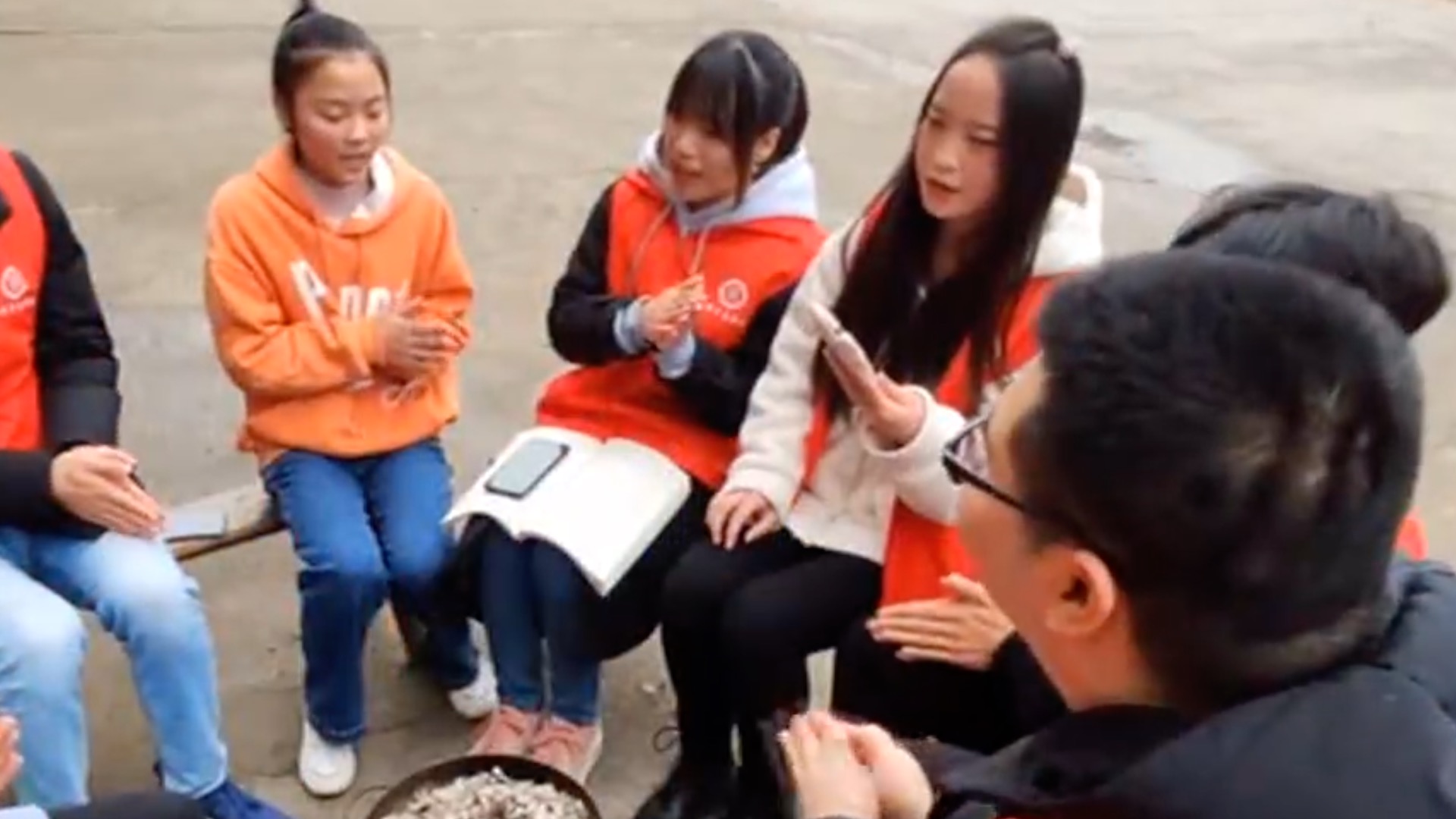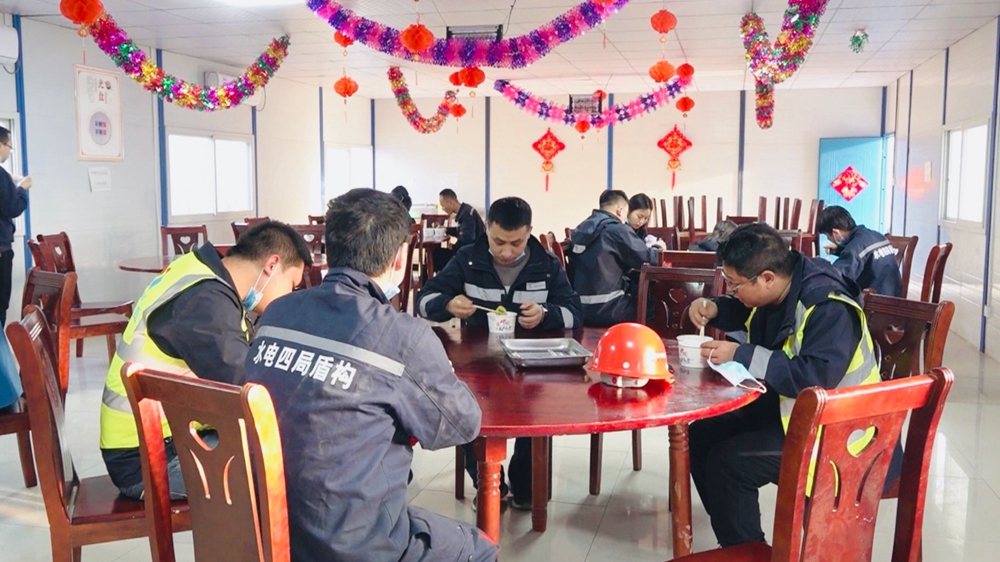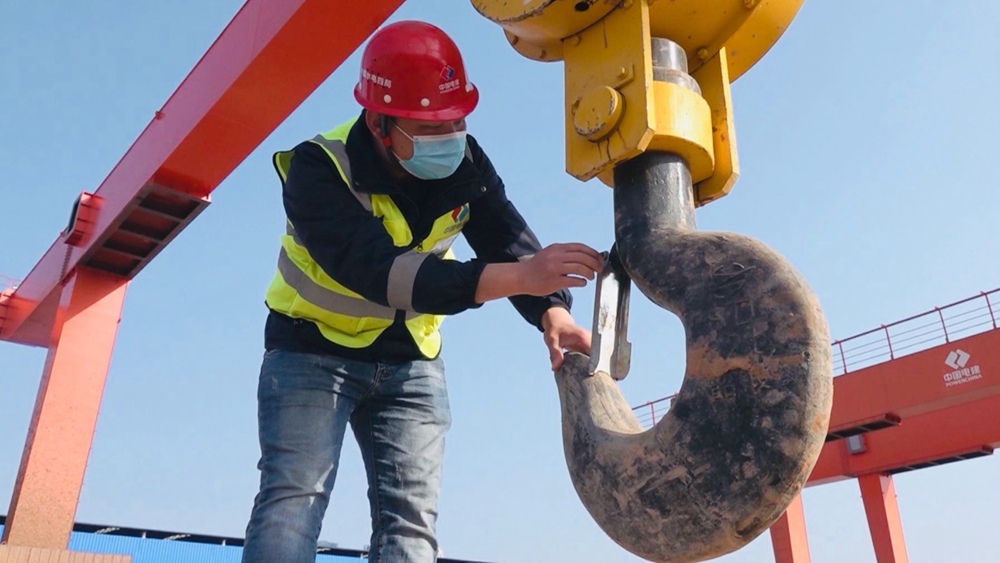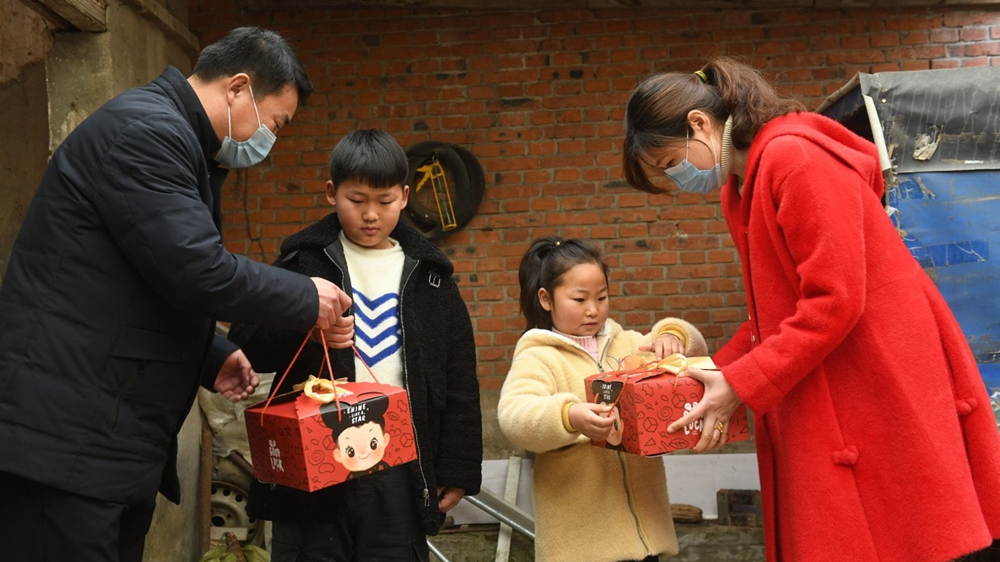02:30

Many migrant workers have decided to stay put for the upcoming Chinese Lunar New Year as Chinese authorities encourage people not to travel during the weeklong holiday to avoid the risk of spreading the coronavirus.
In late 2020, a small-scale COVID-19 outbreak occurred in several provinces, including north China's Hebei and northwest China's Heilongjiang and Jilin, prompting the government to increase its vigilance.
The Spring Festival travel season, or Chunyun in Chinese, usually lasts for about 40 days and is considered the world's largest human migration because in Chinese tradition, the festival, also known as the Chinese Lunar New Year, is considered the most important occasion for family reunions.
For example, some three billion trips were made nationwide during Chunyun in 2019.

Subway project workers enjoy dumplings at a canteen on the construction site in southwest China's Sichuan Province. Zhang Kai /CGTN
Subway project workers enjoy dumplings at a canteen on the construction site in southwest China's Sichuan Province. Zhang Kai /CGTN
Guo Chenliang from northwest China's Gansu Province is still working on a subway project in Chengdu, the provincial capital of southwest China's Sichuan. This will be the first time he has celebrated this important festival away from home.
"I feel a bit of a sense of loss because I can't be with my parents and my child. I hope I can go back home as soon as possible to see them when the pandemic is completely controlled," 26-year-old Guo told CGTN.
Guo is not alone. Some 200 other workers from various provinces will also remain on the construction site, including his wife, who works in the site's canteen. The company in charge of the project is offering various incentives to the workers.
Zhu Junping, vice chairman of the Chengdu Rail Transit Group, told CGTN that the workers will get nine times their regular pay for working during the holiday. On top of that, they'll also get a bonus of 1,000 to 3,000 yuan (about $155 to $465).

Guo Chenliang works on a subway construction site in Chengdu City, southwest China's Sichuan Province. Zhang Kai /CGTN
Guo Chenliang works on a subway construction site in Chengdu City, southwest China's Sichuan Province. Zhang Kai /CGTN
"And the canteen will prepare special dishes from their hometowns to ease their homesickness," said Zhu, adding that the company management will also join them.
"I'm satisfied with what the company has done for us to make us feel warm. It'll be the first time I've celebrated Spring Festival with so many people," said Xin Jiao from northwest China's Liaoning Province. "I'm really looking forward to it."
Decorations are already up in their living quarters to create a festive atmosphere.
According to official data, China has about 300 million migrant workers employed in different cities. For most of them, Spring Festival is one of the few occasions of the year when they're able to reunite with family.

Guo Chenliang and his wife Wang Tingting video chat with their daughter. Zhang Kai /CGTN
Guo Chenliang and his wife Wang Tingting video chat with their daughter. Zhang Kai /CGTN
During challenging times like this, it's their parents and children that they are really concerned about.
Guo and his wife speak with their two-and-a-half-year-old daughter via video chat every day. Many of the workers use the same medium to keep in touch with their family members.
"As a mother, I feel guilty that I can't be with my daughter. I will try to spend every Spring Festival with her after this," said Guo's wife, Wang Tingting.
Like most migrant workers, Guo travels across the country for work, and over the past few years, visiting home has been a luxury for him.

Two "left-behind" children from east China's Anhui Province receive Spring Festival gifts from their teachers. /CFP
Two "left-behind" children from east China's Anhui Province receive Spring Festival gifts from their teachers. /CFP
"I hope my father will drink less because of his health and my mother won't wear herself out too much. My daughter is still very young. I just hope she'll be happy each day," he said.
The central government has issued a notice, asking local authorities to provide necessary assistance to all "left-behind" children, making sure they can still enjoy a festival full of love and joy. In recent weeks, many local government departments, enterprises and volunteers have given gifts to these families.
Many workers say the separation is temporary, and the long-awaited reunion will be sweeter when the pandemic is over.

